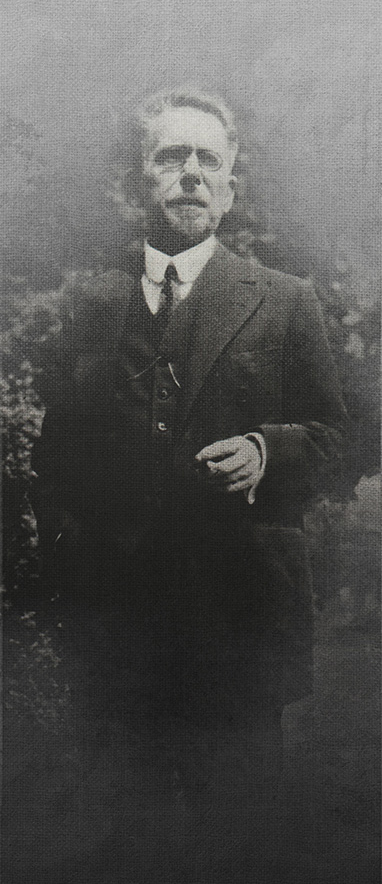
Władysław Reymont
actually Stanisław Władysław Rejment - writer and novelist, a Nobel Prize laureate
(born on 07.05.1867 in Kobiele Wielkie, died on 12.05.1925 in Warsaw)
There are few who read the book of nature and take for themselves the food of life - Wladysław Reymont in his novel Komediantka
Władysław Reymont - an outstanding representative of mainstream literary realism and naturalism - was born in a small village of Kobielsko near Radomsko. From an early age the future Nobel Prize winner was interested in the surrounding nature and the lives of the common people, which would prove to be one of the main themes of his later novels.
Reymont was considered to be too bright child, and his father – wary and enterprising organist - ordered his son to apply to the tailoring school. Reymont learned to sew clothes in Warsaw, which we can learn today from a plaque on the building at Krakowskie Przedmieście 41 - the headquarters of the Guild of Tailors.
Thanks to the protection of the family and friends, the young Władysław found employment as an officer of Vienna Railways. However, the job of a scout, watching departing trains, was extremely tedious. In the mind of Reymont a bigger dream was born - a desire to be an actor. He did not succeed in this area either, playing secondary roles in a dying travelling theatre. Soon after, the young man went through the fascination with mysticism and spirituality. At one point even he considered joining a monastery.
The nineties proved to be groundbreaking, when Reymont teamed up with Tygodnik Ilustrowany (Weekly Illustrated). His debut story Pracy! (Work!) from 1891 revealed the fullness of his literary talent and resulted in subsequent works. The greatest of those was a panoramic novel Ziemia Obiecana (Promised Land), as well as written in the years 1901-1908, a four-part folk epic known as Chłopi (The Peasants).
In 1900 Reymont had a serious train accident. Paradoxically, this event proved to be a blessing. He received a compensation of 38.5 thousand roubles, which gave the writer a full financial independence, thanks to which he could take an educational journey through Europe and the USA. During his expeditions Reymont met other famous writers and poets - including Stefan Żeromski and Stanislaw Przybyszewski.
His constantly deteriorating health made Reymont permanently settle in Poland. He died in 1925 in Warsaw. A year earlier, he received his crowning achievement for his work, he receive a Nobel Prize for Literature for Chłopi.
Reymont remains are buried at Warsaw's Powązki Cemetery, in the Avenue of the Notables - the burial place of famous Poles. His heart is located in the Church of the Holy Cross at Krakowskie Przedmieście.
Do you know?
- Besides Chłopi and Ziemia Obiecana, Reymont also wrote other novels, such as Komediantka (The Deceiver), Fermenty (Ferments) and Bunt (The Revolt).
- Bunt is a dystopian novel published in 1924, telling a story about animal rebellion against the authority of man. A rebellion, launched under the banner of the fight against injustice, quickly turns into a bloody coup. The Bunt's storyline is similar in construction to Animal Farm, a novel written more than twenty years later, by George Orwell, which became a worldwide bestseller.
- Reymont is also the author of several novels and short stories, compiled in several volumes. These include such collections as Spotkanie (The meeting), Sprawiedliwie (Justly), W jesienną noc (In the autumn night) and Krosnowa i świat (Krosnowa and the world).
- The novel Ziemia Obiecana and Chłopi were both made into film. The first in the form of a feature film, and the other as a television series.
- According to the medical report, in his train accident Reymont broke twelve ribs and suffered other injuries to the body, which threatened his continual capacity for mental work.
- Reymont was active in the community. He served as President of the Polish Union of Writers and Journalists, and while in America he was raising money for the newly independent Poland.






